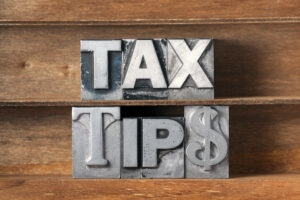Top Tips to Remember When You Can’t Pay Business Taxes

Business taxes can be a nightmare for a lot of companies; especially small businesses that are trying to stay afloat. Things can get even tougher when it comes time to file your return and you end up on the wrong side of the ledger. So what should you do if you end up owing more business taxes than can afford?
First, don’t panic. There are steps you can take to get through the process. Then, make sure you still file your taxes on time, even if you know you don’t have the money. By delaying your filing you will be penalized further and owe even more money. So, file on time. If you’re already late, file as soon as possible.
If you can’t pay your debt in full at tax time, you do have some options. You can still make full payments a little late by filing for an extension. If you will have the funds shortly then this is a good option. Keep in mind, though, that you will be charged interest until the full amount is paid off.
You can also agree to the installment method, which allows you to make monthly payments until you pay off the debt in full. This requires a one-time set-up fee but it also allows you to choose the terms and the method of payment. You can also go with the offer in compromise route, which could lower your total bill if the IRS accepts your offer. Lastly, you could request that the IRS delay its collection if you absolutely don’t have the means to pay off your debt. This is called a temporarily delay collection.
Whatever method you choose, it’s always best to pay off whatever you can as soon as you can, and thus avoid further interest and penalties. If you find yourself in this situation, contact GROCO. We’ll help you determine which route is best for you. Call 1-877-CPA-2006, or click here.
Tax on Foreign Income of US Citizens or Residents
Tax on Foreign Income of US Citizens or Residents Foreign Earned Income Exclusion Individual US citizens and residents are taxed on their worldwide income. However, IRC Sec. 911 provides that qualified taxpayer can elect to exclude foreign earned income up to $87,600 from taxable income. (Read IRS Pub 54 for more details.) The qualifications are:…
IRS Eases Reporting Burden on Corporations and Shareholders
IRS Eases Reporting Burden on Corporations and Shareholders WASHINGTON — The Internal Revenue Service today announced new regulatory revisions that will reduce the reporting burden on corporations and shareholders while also making it easier for them to file their tax returns electronically. The announcement is part of an on-going effort by the IRS to remove…
How Is That Federal Tax Code Treating the Uber Rich?
How Is That Federal Tax Code Treating the Uber Rich? Earlier this year in his annual State of the Union Address, President Obama spent much of his speech discussing taxes. Specifically he talked greatly about the unfair tax system that favors the rich. If the president’s claims were to be believed, then you would think…
Tips to Help Taxpayers with January 30 Tax Season Opening
We thought it a good idea to share some tips to help taxpayers with the January, 30 tax season opening. The IRS will begin processing most individual income tax returns on Jan. 30 after updating forms and completing programming and testing of its processing systems. The IRS anticipated many of the tax law changes made…




